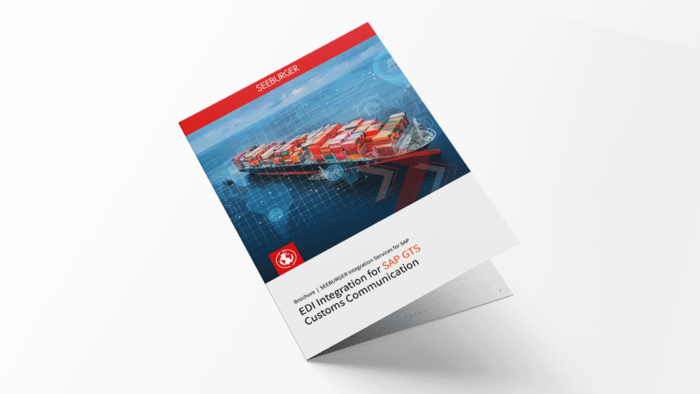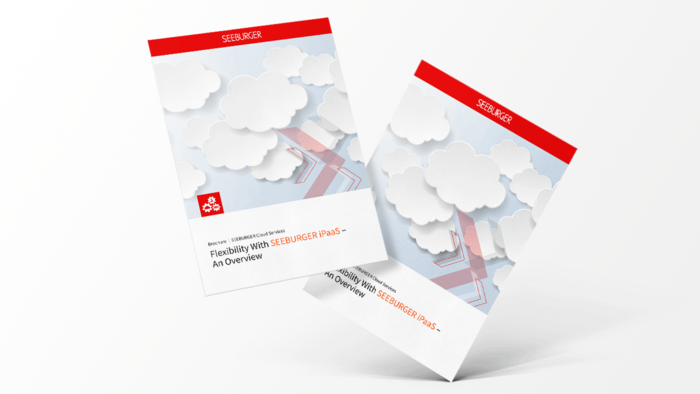Digitalization in the Oil, Gas and Chemical Industry
Reduce costs with ready-to-use integration content and services
Increase efficiency and sustainability through process automation and intelligent integration in line with industry standards
The oil, gas and chemical industry has long been recognized as a cornerstone of the global economy, providing essential resources and raw materials for various other sectors. However, in recent years, this industry has undergone a significant transformation driven by digitalization.
As vast amounts of data are being generated from various sources such as exploration, production, refining, supply chains and customer interactions, companies in the industry are utilizing technologies like IIoT, AI, big data analytics, cloud computing and robotics to make data-driven decisions, improve efficiency, reduce costs and manage risks. Integrating digital technologies throughout the value chain enables streamlined operations, optimized production processes, enhanced safety measures and reduced environmental impact.
More than 14,000 satisfied customers rely on SEEBURGER
Decades of industry experience
Digitalization fuels data-driven decision making, which is essential for building a carbon-neutral world. Our team of industry experts is here to support digital process automation and onboarding with self-services and standardized mappings for oil, gas and chemical companies. We also offer fully managed cloud services, powered by the SEEBURGER BIS Platform.

Grace Simplifies Operations, Improves B2B Collaboration
Digital technology is transforming business today, fueling the development of new, innovative business models and the optimization of business processes. Companies across the globe are going digital with goals to increase process efficiency, improve the user experience and simplify day-to-day operations.
Embracing digitalization in the oil, gas and chemical industry creates new opportunities and business models.
By leveraging data, organizations improve efficiency, drive innovation and gain insights. Digitalization revolutionizes the industry through automation, real-time monitoring and proactive decision-making, all of which can be achieved with the SEEBURGER BIS Platform.
Prioritizing safety and sustainability minimizes risks and environmental impact while maximizing productivity and profitability. This journey unlocks growth potential, improves performance and provides a competitive edge in the industry's dynamic landscape.
The Cloud Integration Services for SAP GTS facilitate fast and secure data transfer with customs authorities worldwide. The solution seamlessly integrates with SAP GTS, enabling companies to optimize international trade processes and collaborate with modernized government and customs systems. The service supports customs processes such as export, import, transit and EMCS. Reports generated in SAP GTS are translated into the required exchange format for national customs authorities and delivered accordingly. Acknowledgements, such as accompanying export documents, are transferred back to SAP GTS. Additionally, the service has monitoring capabilities to help personnel keep track of the overall process.
While electronic invoicing is not new to the industry, emerging technologies, security concerns and compliance requirements are making automated billing a necessity.
Automated billing reduces resource expenditure, improves cash flow and enhances customer loyalty through faster invoice delivery, flexible payment options and automated reminders. It also enables business growth and innovation by facilitating experimentation with different pricing models, such as recurring, usage-based or hybrid models. By providing consistent, accurate and professional invoices that align with customer preferences, automated billing enhances the overall customer experience.
Moreover, adopting automated billing systems contributes to environmental sustainability, which is particularly important for industries facing accusations of unsustainable practices. By implementing e-invoicing, businesses can take a step forward in becoming more environmentally friendly.
PIDX streamlines processes, improves accuracy and establishes common formats and protocols for communication. It facilitates seamless transactions and collaboration by exchanging documents like orders, invoices, catalogs and operational data.
Similarly, CIDX enables efficient communication across the chemical industry, promoting standardized formats for procurement, logistics, specifications, safety data and compliance. It enhances efficiency, reduces errors and improves supply chain management.
Both PIDX and CIDX play crucial roles in enabling electronic data interchange, fostering automation and promoting industry-wide collaboration and standardization. By adopting these frameworks, companies in the petroleum and chemical sectors can streamline their operations, reduce costs, improve data accuracy, and enhance overall business efficiency.
SEEBURGER offers predefined mappings for compatibility with PIDX, CIDX and many other message standards.
By integrating suppliers and leveraging process automation, the oil, gas and chemical industry can achieve operational efficiency, cost savings, improved supply chain visibility and enhanced collaboration.
These advancements contribute to better decision-making, reduced risk and increased competitiveness in the dynamic and complex business environment of the oil, gas and chemical industry. The SEEBURGER Community Management Application CMA with self-services for partner communication and testing is the perfect tool to quickly and easily connect a large number of partners with standardized mappings and communication channels,. Save time and money and improve cooperation with your business partners. No more time-consuming phone calls and emails. The CMA gives you complete transparency across all automated processes.
Repurposing refineries, for example, presents unique opportunities, such as converting them into renewable energy hubs like solar or wind farms, biofuel production centers or research and development facilities for future-proof green technologies. This shift towards sustainability aligns with governmental environmental goals and positions early adopters as industry leaders, fostering new partnerships and market advantages. Leveraging digital technologies enables a seamless transition and empowers oil, gas and chemical companies to navigate towards a more sustainable and prosperous future.


